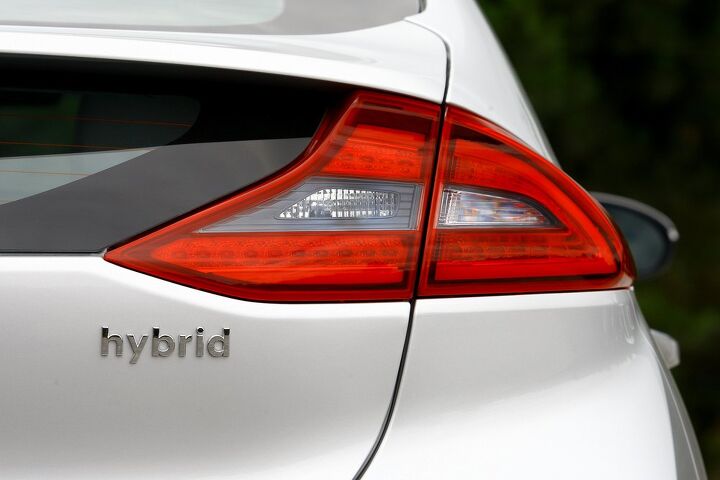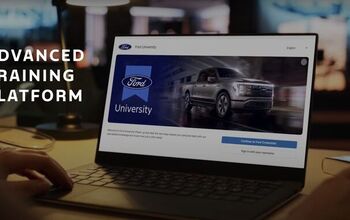Are Hybrids More Reliable Than ICE Vehicles?
The popularity of electric vehicles (EVs) is on the rise, yet they face challenges regarding reliability. Consumer Reports' 2023 Annual Auto Reliability Survey reveals that, on average, new EVs present 79 percent more problems than internal combustion engine (ICE) vehicles. Electric pickups are particularly less reliable, marking the least reliable vehicle category.
Comparative Performance: Hybrids, PHEVs, and ICE Vehicles
Hybrids emerge as more reliable options, experiencing 26 percent fewer problems than ICE vehicles. Conversely, Plug-in Hybrid Electric Vehicles (PHEVs) show an average of 146 percent more problems compared to ICE vehicles. This variance highlights the diverse performance of electrified vehicles.
Insights from Consumer Reports' Auto Testing Director
Jake Fisher, Senior Director of Auto Testing at Consumer Reports, notes that EVs are relatively new in the mainstream market. He observes some positive trends in EV reliability but advises consumers to consider models beyond their first year of release for better reliability.
Asian Brands Lead in Reliability, Challenges for Domestic Manufacturers
Asian auto brands, particularly Lexus and Toyota, dominate Consumer Reports' 2023 brand reliability rankings. In contrast, U.S. manufacturers face challenges, with Buick being the highest-ranked domestic brand at 12th place, and Chrysler ranking last.
Tesla's Performance in Battery and Charging
Tesla models, specifically the Model Y and Model 3, show comparatively fewer issues in battery and charging, diverging from the general trend of EV problems in these areas.
Consumer Reports' Comprehensive Data Analysis
The 2023 survey encompasses feedback on over 330,000 vehicles, covering 20 potential problem areas including engine, electric motors, and in-car electronics. This data forms the basis for predicting new car reliability.
Evolving Auto Market Demands
Consumer Reports' President and CEO, Marta L. Tellado, emphasizes the unchanging consumer need for safe and reliable cars, despite shifts in the auto market. The organization's annual report aims to guide buyers towards dependable vehicle choices.
New Trouble Areas for Electrified Vehicles
With the growing presence of hybrids and EVs, Consumer Reports has added specific trouble areas to its survey, such as Electric Motor, EV/Hybrid Battery, and EV Charging, to better assess these vehicles' unique challenges.
Changes in Overall Score Calculations for Safety
Starting with 2024 models, Consumer Reports is adjusting its Overall Score system. Vehicles lacking standard automatic emergency braking with pedestrian detection will see a deduction in points. Similarly, active driver assistance systems without effective direct driver monitoring systems will lead to a score reduction.
Electric Vehicles: Varied Problems Across Brands
EVs, including electric SUVs and pickups, continue to be less reliable. While Tesla faces challenges with body hardware and climate systems, other brands struggle more with powertrain, battery, and charging issues.
Hybrids Outshine PHEVs in Reliability
Hybrids are proving more reliable than both EVs and ICE vehicles. In contrast, PHEVs, due to their complexity, exhibit greater reliability issues.
Overview of Brand Performances
The survey provides a detailed analysis of various brands, highlighting their specific strengths and weaknesses across different models and categories.
This article was co-written using AI and was then heavily edited and optimized by our editorial team.
More by TTAC Staff
Latest Car Reviews
Read moreLatest Product Reviews
Read moreRecent Comments
- Zipper69 "At least Lincoln finally learned to do a better job of not appearing to have raided the Ford parts bin"But they differentiate by being bland and unadventurous and lacking a clear brand image.
- Zipper69 "The worry is that vehicles could collect and share Americans' data with the Chinese government"Presumably, via your cellphone connection? Does the average Joe in the gig economy really have "data" that will change the balance of power?
- Zipper69 Honda seem to have a comprehensive range of sedans that sell well.
- Oberkanone How long do I have to stay in this job before I get a golden parachute?I'd lower the price of the V-Series models. Improve the quality of interiors across the entire line. I'd add a sedan larger then CT5. I'd require a financial review of Celestiq. If it's not a profit center it's gone. Styling updates in the vision of the XLR to existing models. 2+2 sports coupe woutd be added. Performance in the class of AMG GT and Porsche 911 at a price just under $100k. EV models would NOT be subsidized by ICE revenue.
- NJRide Let Cadillac be Cadillac, but in the context of 2024. As a new XT5 owner (the Emerald Green got me to buy an old design) I would have happy preferred a Lyriq hybrid. Some who really like the Lyriq's package but don't want an EV will buy another model. Most will go elsewhere. I love the V6 and good but easy to use infotainment. But I know my next car will probably be more electrified w more tech.I don't think anyone is confusing my car for a Blazer but i agree the XT6 is too derivative. Frankly the Enclave looks more prestigious. The Escalade still has got it, though I would love to see the ESV make a comeback. I still think GM missed the boat by not making a Colorado based mini-Blazer and Escalade. I don't get the 2 sedans. I feel a slightly larger and more distinctly Cadillac sedan would sell better. They also need to advertise beyond the Lyriq. I don't feel other luxury players are exactly hitting it out of the park right now so a strengthened Cadillac could regain share.


































Comments
Join the conversation